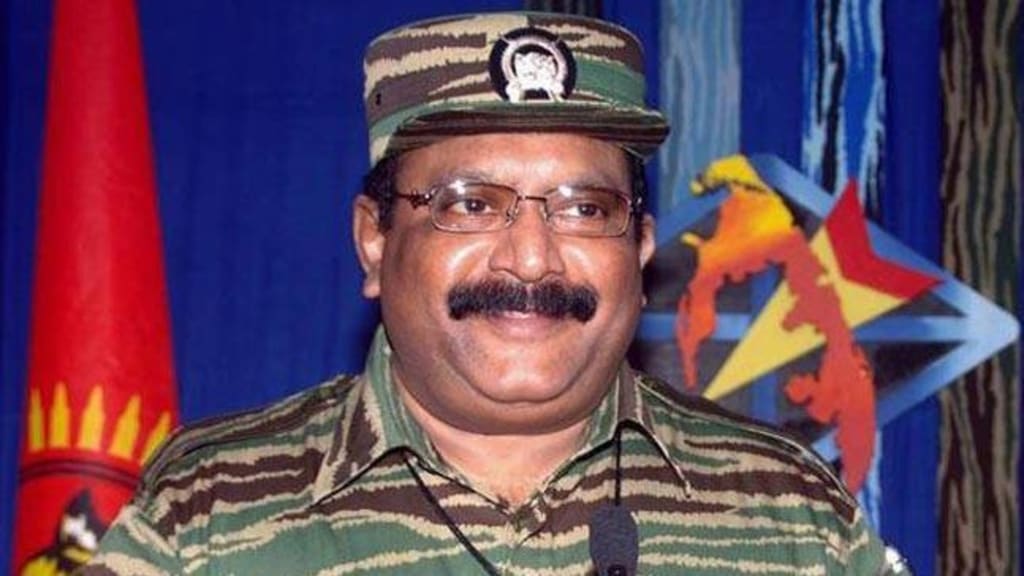
Velupillai Prabhakaran, the founder and leader of the Liberation Tigers of Tamil Eelam (LTTE), also known as the Tamil Tigers, was one of the most infamous and controversial figures in Sri Lankan history. The LTTE waged a brutal and violent armed struggle for a separate Tamil homeland in the north and east of Sri Lanka for over three decades, resulting in the deaths of tens of thousands of people.
However, Prabhakaran himself became a symbol of the Tamil struggle for independence, revered by many in the Tamil community in Sri Lanka and around the world. He was seen as a charismatic and uncompromising leader who was willing to do whatever it took to achieve his goals.
Despite being declared dead by the Sri Lankan government in 2009, rumors persist that Prabhakaran may still be alive. However, there is no credible evidence to support these claims, and it is widely believed that he was killed during the final stages of the Sri Lankan civil war in 2009.
Prabhakaran was born on November 26, 1954, in Velvettithurai, a small town in the northern Jaffna district of Sri Lanka. He grew up in a Tamil-speaking family and was educated at a local school. In the early 1970s, he became involved in Tamil nationalist politics and joined the Tamil New Tigers, a militant group that would later become the LTTE.
In the 1980s, the LTTE emerged as the dominant Tamil militant group, waging a ruthless guerrilla war against the Sri Lankan government. Prabhakaran became the leader of the organization, and his personality cult grew rapidly among Tamils both in Sri Lanka and abroad.
The LTTE was notorious for its suicide bombings, assassinations, and other violent tactics, which were used to devastating effect against the Sri Lankan military and civilian targets. The group was also responsible for some of the worst atrocities of the Sri Lankan civil war, including the 1991 assassination of former Indian Prime Minister Rajiv Gandhi.
In 2009, the Sri Lankan military launched a final offensive against the LTTE, which had been pushed back to a small patch of territory in the northeast of the country. In May of that year, the Sri Lankan government declared victory over the LTTE and announced that Prabhakaran had been killed in the fighting.
Despite the Sri Lankan government's claims, some supporters of the LTTE and Tamil separatism continue to believe that Prabhakaran may have survived the conflict. However, there is no credible evidence to support these claims, and it is widely believed that he was killed along with other senior LTTE leaders during the final stages of the conflict.
The legacy of Prabhakaran and the LTTE remains controversial to this day. While many Tamils continue to view him as a hero and martyr, others see him as a terrorist and a war criminal responsible for the deaths of thousands of people. The Sri Lankan government has also faced criticism for its conduct during the civil war, including allegations of war crimes and human rights abuses.
In conclusion, while rumors persist that Velupillai Prabhakaran may still be alive, there is no credible evidence to support these claims. It is widely believed that he was killed during the final stages of the Sri Lankan civil war in 2009. Prabhakaran remains a controversial figure, viewed by some as a hero and by others as a terrorist and war criminal. The legacy of the LTTE and the Sri Lankan civil war continues to be a contentious issue in Sri Lanka and the Tamil diaspora around the world.
The Sri Lankan civil war officially ended in May 2009, with the Sri Lankan government declaring victory over the LTTE. However, the conflict left a lasting impact on Sri Lanka, with tens of thousands of people killed and widespread destruction across the country.
In the aftermath of the war, the Sri Lankan government faced criticism from the international community over allegations of human rights abuses and war crimes. The United Nations Human Rights Council (UNHRC) established a commission of inquiry to investigate these allegations, which published a report in 2015.
The report accused both the Sri Lankan government and the LTTE of war crimes, including the deliberate targeting of civilians and the use of child soldiers. The report also called for the establishment of a special court to investigate and prosecute those responsible for these crimes.
However, the Sri Lankan government has been slow to implement the recommendations of the UNHRC report, leading to further criticism from the international community. In 2019, the UNHRC passed a resolution giving Sri Lanka two more years to implement the recommendations of the report.
The issue of Tamil separatism and the legacy of the LTTE continues to be a contentious issue in Sri Lanka. While the Sri Lankan government has taken steps to address some of the grievances of the Tamil community, including devolving some power to Tamil-majority areas, many Tamils continue to feel marginalized and discriminated against.
The Tamil diaspora around the world also remains deeply divided over the issue of Tamil separatism. While some continue to support the LTTE and its goals of a separate Tamil homeland, others have rejected violence and have called for a peaceful resolution to the conflict.
In conclusion, while Velupillai Prabhakaran may be seen as a hero by some in the Tamil community, his legacy remains controversial and divisive. The Sri Lankan civil war left a lasting impact on Sri Lanka, with allegations of war crimes and human rights abuses on both sides. The issue of Tamil separatism and the rights of the Tamil community continue to be a contentious issue in Sri Lanka and the Tamil diaspora around the world.
In recent years, there have been some efforts to promote reconciliation and healing in Sri Lanka. In 2015, President Maithripala Sirisena established an Office for National Unity and Reconciliation, which aims to address the root causes of the conflict and promote peace and reconciliation.
The government has also taken steps to promote economic development in Tamil-majority areas, with the aim of addressing some of the long-standing grievances of the Tamil community. However, progress has been slow, and many Tamils remain skeptical of the government's intentions.
There have also been some efforts to address the issue of accountability for war crimes and human rights abuses committed during the civil war. In 2018, the Sri Lankan government established an Office of Missing Persons, which aims to investigate the fate of those who disappeared during the conflict.
However, the government has been criticized for its lack of progress in holding those responsible for war crimes and human rights abuses accountable. Many Tamils continue to call for an international investigation into these allegations, arguing that the Sri Lankan government is unwilling or unable to investigate itself.
In conclusion, while there have been some efforts to promote reconciliation and healing in Sri Lanka, the issue of Tamil separatism and the legacy of the LTTE remains a contentious issue. The Sri Lankan government has taken some steps to address the root causes of the conflict, but progress has been slow, and many Tamils remain skeptical of the government's intentions. The issue of accountability for war crimes and human rights abuses committed during the civil war also remains unresolved, with many Tamils calling for an international investigation into these allegations
The question of whether Velupillai Prabhakaran is still alive remains a topic of speculation and debate. There have been numerous rumors and claims over the years about his possible survival, with some supporters of the LTTE insisting that he is still alive and in hiding.
However, there is no concrete evidence to support these claims, and most experts believe that Prabhakaran was killed in the final days of the Sri Lankan civil war. The Sri Lankan government has consistently maintained that Prabhakaran was killed during the war, and there have been no confirmed sightings of him since then.
Regardless of whether Prabhakaran is still alive or not, his legacy continues to shape the political and social landscape of Sri Lanka. The issue of Tamil separatism and the rights of the Tamil community remain major points of contention, and the legacy of the LTTE continues to influence the political discourse in Sri Lanka.
In recent years, there has been some progress in addressing the grievances of the Tamil community and promoting reconciliation in Sri Lanka. However, there is still a long way to go, and many Tamils continue to feel marginalized and discriminated against.
About the Creator
Harish
ting






Comments
There are no comments for this story
Be the first to respond and start the conversation.